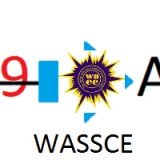This guide contains all the information you need to utilise the benefits of online learning to gain skills that would get you closer to self-actualisation.
Whether you are a high school dropout, still in the university, or a professional interested in learning new skills to keep you competitive in the marketplace, online education/distance learning offers one of the best ways to achieve it in our present age irrespective of where you are in the world or your socioeconomic status.
Difference Between Online Education And Distance Learning
Most people think online education and distance learning are the same, but they are not even though they have the same concept.
Students can make use of online education with a teacher or an instructor present, but distance learning means no instructor or even classmates. The student completes the courses making do with the pre-made instruction provided.
Some schools and universities incorporate online education to act as a teaching supplement saving the teacher’s time and allowing students to learn from a different teaching style.
Distance learning may rely on online learning, but it’s different from online education because the instructors are not physically present. They provide learning instructions developed along with the courses or webinars, audio, video, email, eBooks or snail mails allowing people to learn from the comfort of their homes countries apart.
The History Of Online Education And Distance Learning
Distance learning has existed a long time, precisely around when the U.S Postal services was developed in the mid-1800s. But online education began during the late 1900s with the invention of the personal computer and web.
Distance learning had evolved over the years from when the “correspondence college” got developed and implemented. Institutions sent instructional missives to professors and students through postal services.
The first correspondence program, “Society to Encourage Home Studies” was established in 1873 at Boson. A lot of other correspondence programs sprang up after that time, but it took the University of South Africa to bring distance learning into existence.
However, distance learning became relegated to the background when the University of House offered college courses on television using the first public television station KUHT. They aired classes in the evening because a more significant percentage of learners had to work during the day.
Online Education Came Soon After The Television Learning Concept
When the personal computer and word wide web got invented, online education began and made distance learning a lot easier. The first institution to launch an online collegiate offering both bachelors and master’s degrees was the University of Phoenix in 1989.
Two entrepreneurs by the name Glen Jones and Bernand Luskin were the first people to get their online university, Jones International University accredited. What followed were many creations of online programs and courses.
Online education has improved so much that in 2009, 4.5 million students got their MBA (Master of Science in Business Administration) through online classes. The number of people enrolling for online courses and programs seems to increase every day.
Benefits Of Online Education And Distance Learning
The advantages of online education are many. But we will consider a few:
Accessibility
Online learning helps individuals who want to attend certain universities but cannot due to distance, funds, etc. They can easily select a program or course from what the traditional universities offer online and learn.
They need not bother about travelling to an unknown state or country, subjected to high rent cost and uncomfortable living condition in the bid to save money, etc.
Comfortability
Individuals involved in distance learning can easily learn at the comfort of their homes rather than sitting crunched up in an uncomfortable chair or having to get excused before using the bathroom. This is because the course directors usually provide all the required material to ace the programs on the web.
You need not to spend money on transportation; neither do you need to think of straightening out the dress to use
Are you a morning person or an owl? Do you read and understand best when lying down or sitting up? With online programs, you can easily discover your best learning style and structure your study to fit this in other to get the best performance while relieving unnecessary discomfort.
Self-Paced Learning
Self-paced learning is one thing motor and brick education do not allow. They expect every student to learn at the same pace and if this doesn’t happen; they term them failures.
Traditional educational system has refused to cater to the slow learning individuals producing students with low self-esteem about their educational prowess. But the truth is everyone can’t learn at the same pace.
Aside from this, so many people have had to give up their partners, family, hobbies, etc. because of the traditional system of education that requires them to spend a certain amount of time in class and so forth leaving other important issues unattended.
Online education has helped to reduce the challenges mentioned above by providing an option for individuals to complete modules and tasks whenever they wish. Students who learn at a fast pace can complete courses in no time while those with a slow pace have all the time.
Also, people need not let go of that high-paying job only because they want to get a post-graduate degree. They can now achieve both with effective time management.
Free Or Lower Cost
Some online courses do not charge learners a dime as they are entirely free to take and still award respectable certificates of completion at the end of the program. It is a different ball game with the traditional education where most students take a loan to complete payment of tuition fees. This factor alone can discourage anyone from attending physical schools especially if they can’t afford it.
The online programs that demand money before enrolling into any of their courses or programs are mostly those offered by universities or specialisation programs. These universities do not charge as much tuition fee online as they do offline.
The best part is that there is also the option of paying per course if you can’t afford everything. You can also take advantage of financial aid, grants or scholarships made available for students that cannot afford it.
Save The Teacher’s Time
Teaching can take a lot of time from teachers when they have to prepare the lesson notes, teach in a class of about 200 students, receive progress reports, and award marks during tests or examinations.
Online learning helps teachers find time to develop and get their lives back.
It also helps them grade students without having to do it manually.
Students take the tests of the courses they are learning online and get real time results. This eliminates the stressful process teachers have to go through grading test or exam scores.
Prevents Boredom
Some teachers can get dull because they’re overworked, have boring teaching styles or don’t have the passion for teaching making students uninterested during lectures. Online learning can help the teacher alternate between different teaching styles which will make the students more engaged and less bored.
Helps In Learning And Improving Skills
Workers or new graduates who want to develop their soft or technical skills for career progress and personal growth can now easily do it.
Cons Of Online Education
Despite its many advantages, online training still has disadvantages which make it not so pleasing to some people. Here are some of them:
Loneliness
One reason people would still prefer the traditional method of education is that it allows you enjoy other activities traditional education has to offer like a sports centre, cultural events, physical relationships, dinner nights, and so on.
Distance learning can deprive you some of these activities and cause you to feel lonely while trying to get a quality education without having to be present at the physical location.
However, if you are taking the online courses with your course mates or colleagues at work, you won’t experience this disadvantage.
Little Or No Feedback
Sometimes, students can get overwhelmed with study materials or find some difficult to understand. In traditional education, the responsibility is on the teacher to break down the materials in ways the students would understand, but with distance learning, students may be left to figure things out.
Some online courses are active as they have instructors online who give feedbacks to questions students ask, but unfortunately, they are not immediate. Students might have to wait for a more extended period to get answers to questions which is usually not the case in a traditional classroom.
Credibility
Online degree certificates get rarely accepted by employers because of the high possibility of it turning out fake as it’s easy to create fake online certificates as compared to offline certificates.
You need to ensure you enrol in an accredited institution online to prevent wasting your money and effort on a worthless certificate.
Accountability
Except you are an expert in time management and getting that degree is of utmost importance to you, it’s easy to get distracted when taking an online program and end up not completing it.
If you are not an independent learner who needs no one to push you to register for courses and complete assignments, then you should consider the traditional system.
Assessments In Online Education
Online instructors use various assessments to determine if their students are meeting their learning objectives or have gained mastery of the course. They also use it to change the learning experience if they notice students are not performing well.
Here are the online assessments used:
Assignments
Students receive assignments from instructors to ensure they have understood and mastered the course materials. Most instructors try not to bombard students with assessments but this might cause students to shift focus from the quality of learning to quantity.
Discussion Activities
Students can discuss various topics of the course they are taking in the discussion forum provided. Instructors usually offer guidelines on how to use the forum and add deadlines to discussions. It helps to include the interaction part of a traditional classroom where students can debate on a topic and reach consensus.
Tests
Tests which can be in the form of essays, multiple choice quizzes, exams in monitored brink and mortar test centres help instructors track the learning progress of their students. Online quizzes might be usually short but frequent, and students can get feedbacks through their emails.
Journaling
Online instructors provide journals individually or provide a class blog for all the students taking the online course to contribute.
The journals are for students to write their reflections while taking the course. Most instructors have a general format of journaling which they expect the students to follow and they are:
· Journal introduction which takes place at the beginning of the class
· Weekly journaling where students write reflections on what they’ve learned, takeaways, values added, improvements on previous knowledge, and how they can apply the new experience.
· Final reflection and summary of all the courses they took
Some instructors add grading points to journaling to enable students to take part in it.
Projects
Projects are another form of online education assessments which uses simulations, case studies, brainstorming, collaborative group work, debates, role-playing, etc. The instructors also ensure that students receive feedback from their peers about their project after evaluating it.
Other forms of assessments include flashcards, games, paper, presentation, portfolios, experience-based practicum, self-assessment, virtual labs, and so on.
Is Online Education Worth It?
If you can get useful information online about first aid tips, fixing your car, health issues, then it’s possible to improve your knowledge and skill set based on selected programs and courses online so online education is well worth it.
Who Is Online Education For?
Online education and distance learning are for people that meet the following criteria:
- People with basic computer skills and access to a computer or mobile phone with an internet connection.
- People who want to study courses with little or no hands-on training. If you are thinking of enrolling into a physical therapy program, medicine, dentistry, then distance learning is not the right option.
- Individuals who can adequately manage their 24 hours a day by putting it into good can enjoy taking online courses. If you find it hard managing your time, then it might not be for you.
- People who work full time and part-time are also eligible to enrol in online programs.
- Unemployed individuals who are interested in skilling up to meet the requirement of the marketplace.
- Students wishing to stay ahead of their class.
- Lifelong learners who are interested in the art of learning new things to improve their personal growth.
Online Degrees
Individuals can now earn a degree online without having to spend four years in an expensive institution. There are both undergraduate and graduate online degree programs administered by some of the best institutions in the world that are affordable and might even be quicker to complete than their traditional (brink and mortar) equivalent.
You can always search online to find a program that matches your field of study. However, you need to be careful so you don’t enrol in a diploma mill program that does not provide adequate training.
A typical example of a “diploma mill” is an online program that promises you a degree less than the average time needed to earn it — for instance, an online degree program offering a bachelor’s degree in six months.
Another example is when the UK Department of Education does not recognise the official approval and licensing credentials of the program in the country they are operating.
Bearing a similar name to a famous university or using a post office box as their address rather than a real one is another sign that the program is a scam.
Ensure that whatever online degree program you are enrolling for is accredited and you can do this by searching the Department of Education’s websites to see if they have their credentials listed.
Online Courses By Top Institutions And Massive Open Online Courses(MOOCs)
Most online courses delivered by major online course providers are also offered by some top institutions in the world such as Cousera, Udacity, Edx, FutureLearn. For example, two Stanford professors founded Cousera in 2012 while Harvard and MIT founded edx in 2013. Some online courses offer college credits or diplomas that are very respected.
Recently, there has been a rapid expand of the Massive Open Online Courses (MOCCs). MOCCs are free and allow people from all over the world to take these courses.
Online Education: The Future
Online learning is an integral part of adapting to the future of work because studies have shown the ability to learn new skills is essential to thrive or survive the technological disruptions that will eliminate many jobs and create new ones tomorrow. Brick and mortar institutions might be slow to deliver courses that meet the needs of the future because of the overhead so online education providers seem more appealing.
The increasing student loans debt in most developed countries might force people to look at other options for education which makes online education the most likely choice for students around the world.
No face-to-face interaction might be one con of online education, some online education providers are thinking towards the direction of including a virtual reality in their programs so that students can feel like they are in the classroom with one other.
However, we cannot take away the importance of mortar and brick education and replace it with online education but look for a way to incorporate both.
First published: 11/04/2019















